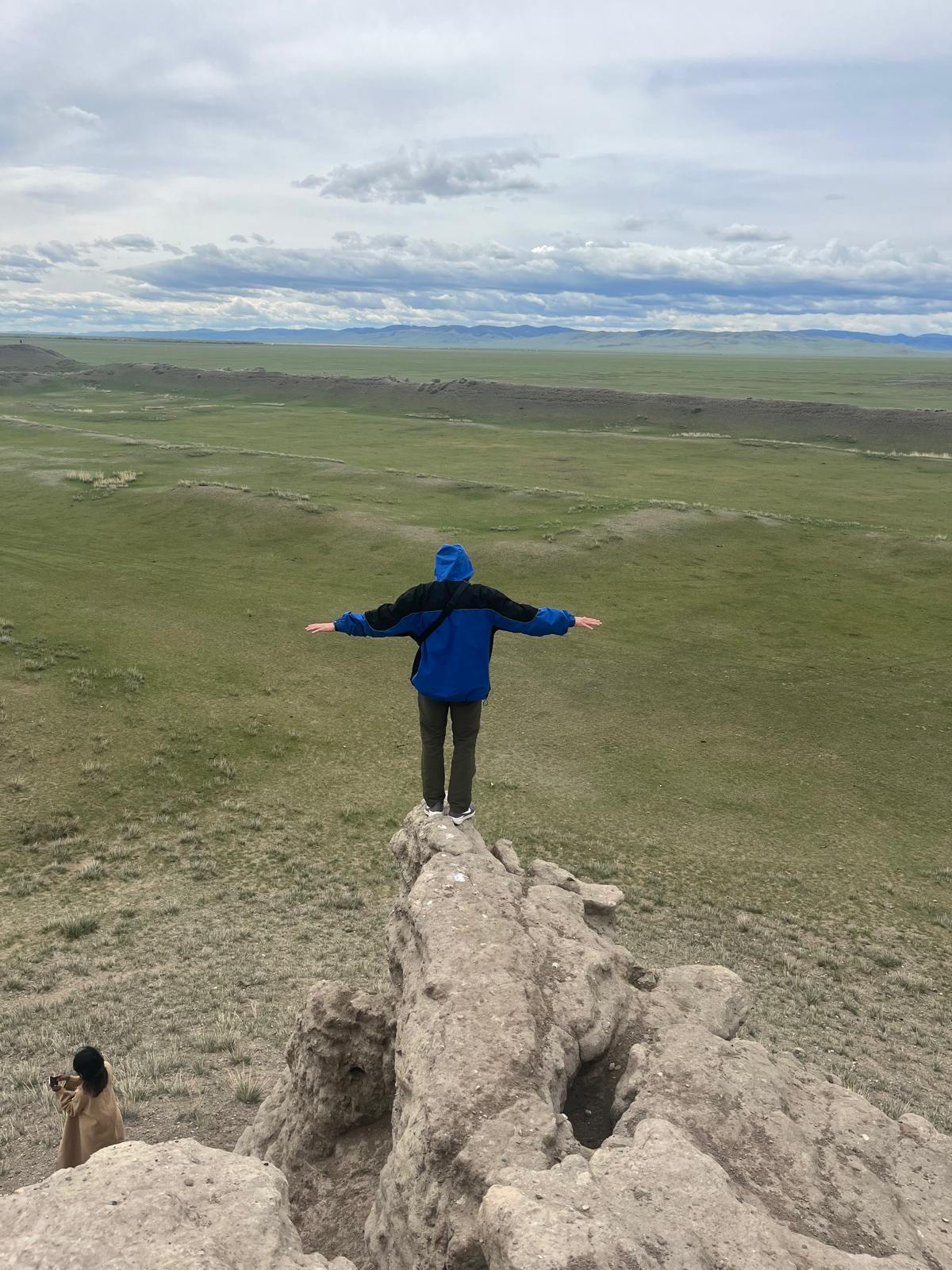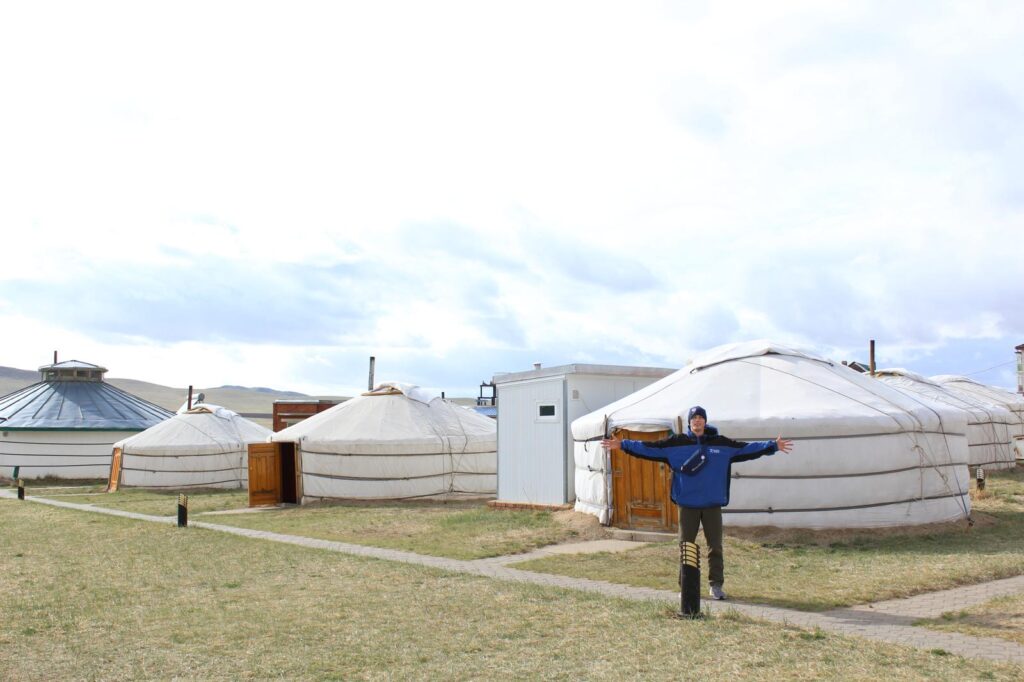
What the Wind Knows: Notes from the Steppe
PGS: Mongolian Civilization: Nomadic and Sedentary
Will, one of the Penn Global Seminar Correspondents, shares his experience abroad during the May 2025 travel period. Follow along with the group of correspondents on our blog and look out for their images on the @pennabroad Instagram feed.
Why go to Mongolia? Maybe you love to travel. Maybe you’re interested in nomadism. Maybe you’re interested in Mongolia’s Turkic roots, or its long history with China. Or the history of the Mongol Empire and its founder, Chinggis Khan. Maybe you’re trying to reinvent yourself. Maybe you’re running away from something, or running towards something. Maybe you just want to go really, really far away.
I wanted to go to Mongolia because I didn’t want to end my Penn experience having grown poorer, not richer in communicable experience. I wanted to get outside of myself and get outside of Penn, to see what the world was really like. Mongolia is a country undergoing rapid change; half the population lives the same nomadic lifestyle as their ancestors did in the 13th century, while the other half lives in Ulaanbaatar, a global city. Mongolia’s reality forces you to view globalization as equally constructive and destructive. The global economy waits for no one, yet it forces you to ask the questions: Is growth for the sake of growth the same ideology as a cancer cell? How do you save a way of life?
For many miles around, the Steppe presents a single determinate fact: the grass is short and hides nothing. And the grass is the lifeblood of the nomadic herders, and is eaten by their goats, cows, sheep, camels, and horses. The landscape becomes a kind of mirror to reflect yourself off of, and, in the act of traveling across it, allows you to become yourself a kind of nomad. We accomplished so many things in Mongolia. From visiting the Bankhar dog project to viewing Przewalski’s horses, there was no end to animals we got to see and learn about. The myriad of ruins we saw – which included cities from the Mongol empire, the Uyghur empire, and the Khitan empire – were both important in a historical context and a prudent reminder that everything, and everyone, has an expiration date. We visited Buddhist monasteries, and Soviet monuments, and winter palaces, and spent hours driving on dirt roads through the endless, rolling Steppe. Mongolia is everything all at once – it is equally a bustling city, an isolating landscape, and a close knit people.

My favorite part of the trip was when we helped a herder family build a ger (yurt) in Hustai National Park. As we raised the lattice wall and then began inserting the roof poles, the family members were patient and overlooked our mistakes (building a ger is not as simple as it looks). The ger, the home of so many Mongolians, is like a mobile, felt extension of themselves, and of their families and what their whole lives must be like. After building the ger, we hiked up a hill. It was late afternoon, and the sun was sinking. As we reached the top, the Steppe spread out far in every direction. We stood there as a group, feeling a closeness beyond reason on a hill on the other side of the world, and I’d like to imagine everyone was thinking the same thought: It is the people that make the trip. For me, that’s the most significant part about this PGS course – that I got to meet such an interesting and smart group of people, and had the opportunity to take a class taught by a world class professor. My advice for a future PGS student is not to take that for granted.
I’ve come to the conclusion that traveling does not make you a better person. It does not necessarily make you smarter, or enhance your perspective, or give you peace. There are, after all, people with great artistic, scientific, and geographical sensitivity who have no concept of right and wrong, or care about things like truth. What travel does give you, however, is the chance to inject yourself into the world narrative. You are no longer a resident tiller of the soil from whatever place you’re from. See that swath of grass? See how it’s darker than the rest? That’s what’s left of the Mongol Empire, the largest empire in human history. You have seen it with your own eyes, you are there. You have walked on the same grass as the greatest conquerors. That’s what travel is, I think. It is the realization that the world is full, not of events, but of people. And you’re one of them. What it is you plan to do, then – as Mary Oliver put it – “with your one wild and precious life?”
Read Related Blogs

Raising a Heartivist Generation: Humility is the Cheat Code
Penn Global Seminar: Compassionate Leadership: “The Power of Love, Service, and Inner Work”: Experiencing the Life of Mahatma Gandhi and other Compassion-based Leaders Mariama, one of the Fall 2025 Penn…

Lost in Translation
Penn Global Seminar: Energy, Security, and Geopolitics Chenyao, one of the Fall 2025 Penn Global Seminar Correspondents, shares her experience abroad during the Winter Break. Follow along with the group of…

Raising a Heartivist Generation: Atop a Giant’s Shoulder
Penn Global Seminar: Compassionate Leadership: “The Power of Love, Service, and Inner Work”: Experiencing the Life of Mahatma Gandhi and other Compassion-based Leaders Mariama, one of the Fall 2025 Penn…